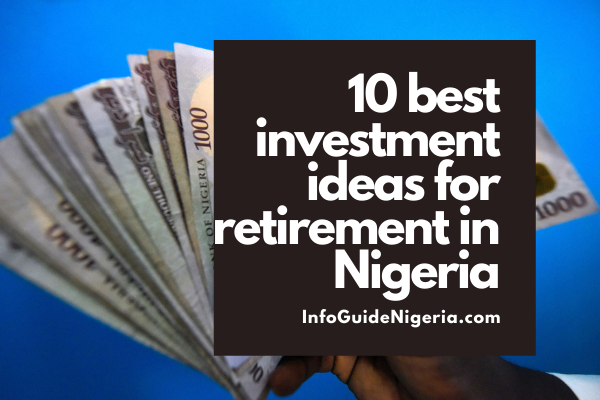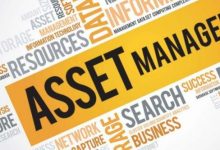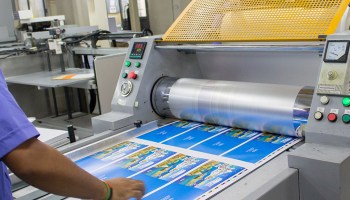
10 best investment ideas for retirement in Nigeria
See the 10 best investment ideas for retirement in Nigeria. Irrespective of whether you work for the Government or private/self-employed, you need these lucrative investment plans to take care of your finances when you eventually retire.
If you’re quite young and have younger kids, then you’re in luck because the article you’re about to read would spur your brain in action and make you begin to think of the best retirement investments to make well ahead of time. On the other hand, if you’re not, let’s say you’re older and looking forward to retirement soonest, consider yourself luckier! A wise man once said the best time to plant a tree was 40 years ago, the second-best time is now.
👉 Relocate to Canada Today!
Live, Study and Work in Canada. No Payment is Required! Hurry Now click here to Apply >> Immigrate to CanadaNo matter how old or young you’re, an investment is the best way to guarantee a stress-free financial future and retirement as well. However, I’m glad to inform you that with the information you are about to receive, you could have investments that would give you monthly returns worth more than your salary.
If you don’t plan well for retirement, you might as well experience these sufferings.
Now, without further ado, let’s jump right into it.
What Is An Investment?
An investment is an action or process of investing money for profit or material result. Simply put, it is a thing worth buying because it may be profitable or useful in the future.
Why Should You Invest?
There are so many reasons why one should invest and one of them is the fact that investing money is a great source of passive income. By passive income, I mean having to do nothing but just sit at home(not because of a pandemic….lol) while your bank account keeps fattening.
In Nigeria, the giant of Africa as we are popularly called, there are so many investment opportunities that suit retirees (senior citizens) perfectly. Some of these investment opportunities are quite saturated (but still make you good bucks) while some opportunities are untapped, just lying fallow, waiting for its money-making machine to be turned on for a superfluous cash flow.
Now if you’re thinking about the best investments that would suit your retirement, then I would like to help you think about these 10 investment opportunities for retirement.
10 Best Investment Ideas For Retirement In Nigeria

👉 Relocate to Canada Today!
Live, Study and Work in Canada. No Payment is Required! Hurry Now click here to Apply >> Immigrate to Canada1. Agriculture
Nigeria, with her current population anchoring at approximately 209 million people this year, you would agree with me that agriculture has a place here and that saturation in this industry is almost impossible (because it is ).
Still in doubt? Let me buttress. Every individual on planet Earth needs food to survive and be nourished. This means that everyone no matter how poor strives to put food in their bellies before shelter or clothing( there’s an opportunity there if you ask me).
In the third quarter of 2020, the GDP from agriculture in Nigeria rose to 5484063.93 NGN Million from 3918668.40 NGN Million in the second quarter of 2020. With the analysis from the Nigerian Bureau of Statistics, one can denote that even a subsistent farmer makes a living off of farming. There various kinds of farming, some need large capital (livestock farming) while others, just need very little capital (especially if you’ve got some land lying fallow) and you’re in business.
Some of the most lucrative agricultural activities that have a high-income probability are fish farming, poultry, pig farming, snail farming, crop farming as well.
Now I know you’re probably thinking to yourself “I am not going to get my hands dirty farming after my retirement when I should be relaxing….No! Never!. Either way, you’re in luck. There are platforms here in Nigeria that allow individuals to invest their money and sit at home while their dividends keep coming into their bank account. Now, this is what an ideal retirement sounds like right?
Read more: How To Start Agribusiness In Nigeria
2. Transportation / Tricycle Business
The Keke napep business in Nigeria is not loved by many only because it is lucrative but quite easy to start as well. Over the years, the Nigerian inter-state transportation has taken dynamic turns from the normal okada riding to the usual kabu kabu (commercial taxi), which have all seen a plunge, thereby uplifting the Keke napep to a higher status.
Now that you are ready to start up, let dive in! You can purchase a brand new Keke napep for about 500,000 naira or 800,000 naira, while a second hand or fairly used Keke can go for 250,000 Naira and above, depending on how long it’s been used. You could also get some for as low as 150,000 nairas but I would not suggest that you consider even for a second because you would spend a lot more fixing it than you spent on the purchase.
Now, it’s a two-way thing. Either you drive the Keke Napep yourself or you give it to someone you know you can trust to give you your returns without having to fight over it. Take precautionary measures such as drafting a proper contract before employing anyone. If possible, have them bring parents or someone they hold of high status as guarantors. This would go a long way in protecting you as well as your Keke napep. It also would help ensure that your driver(s) is diligent and more accountable.
Daily, a Keke driver can make as much as 8,000 – 10,000 Naira. If the cost of fuel, maintenance, and miscellaneous costs 4,000 a day, they are likely to keep 4,000 Naira or more as profit. These monies go to you if you drive the tricycle yourself. If you don’t, you can discuss the daily pay between you and your driver if you don’t put it up for higher purchase.
Read more: How to Start Transportation Business in Nigeria
3. Small Parcel Logistics/On-Demand Delivery
Small parcel logistics is hot now in Nigeria and these drivers are bringing in profit every day for their managers or bosses as the case may be because of the high increase in the use of small parcel logistics, You cannot walk or take a drive these days without coming across two or more small parcel logistics motorcycles in a day.
The best part of it all is that they charge N500 per parcel, depending on the distance they have to cover, sometimes they even charge higher than N500. These drivers could deliver well over 30 parcels a day for a minimum charge of N500 and a Maximum charge of N1500 or above as the case may be. The second best part of it all is that not only is it lucrative, but it is also not capital intensive.
Small parcel logistics business requires a reasonable amount of money for the purchase of motorcycles. So with N400,000, you can start the business. You can purchase a good motorcycle, equipped with a plastic container for the carriage of the products within the price range of N350,000.
A motorcycle is very convenient for the logistics business because it can easily man over a traffic way better than a car would have done. Now that we’ve got the price of the motorcycle out of the way, the next question would be, how many do you intend to purchase? It is advisable to start small, just to tread water and know if you can go on or not. With that said, starting with two motorcycles would be advisable.
With a flat rate of N500, let’s say you deliver 2000 parcels a month with the bikes, that would be a whopping N1,000,000 all to yourself without doing anything. Now you subtract the cost of fueling, salaries (for the drivers), bike maintenance, airtime, etc… and you get to keep the rest of the money and decide whether to increase the business by acquiring more bikes or not. Now that’s the real retirement dream, right?
Read more: 10 Steps to Start Logistics Business in Nigeria
4. Real Estate Investment Trusts (Reits)
REITs are a solid investment for retirees who have some cash in their pocket for pension benefits and want monthly dividends, just like regular dividend-paying stocks. REITs are also highly liquid and allow investors to make other non-residential investments, such as office buildings or malls. In other words, to help you cash out the investment, you won’t need a realtor.
The majority of Nigerians do not know real estate investment trusts (REITs). REITs are a type of collective investment scheme which is governed by The Securities and Exchange Commission (SEC), which pools investor capital and uses it equally for the acquisition of income-generating real estate, mortgage loans, or a combination of both.
To optimize returns for investors who can retain an indirect interest in real estate on a flow-through basis, the portfolio of underlying assets is put under competent control, positioning them as if the assets were owned as a direct investment. REITs are acquired and sold on the main market, just like any other stock.
It was noticed that REITs came with several advantages. One of these is portfolio diversification, as real estate investment, especially for investors interested in diversification, provides an alternative to equity and fixed income securities. Liquidity is also another benefit derived from REITs as it allows relatively liquid assets that can be sold fairly easily to raise cash or to take advantage of other investment opportunities (compared to direct investment in real estate).
In Nigeria, there are three main real estate investment trusts, the UPDC Real Estate Investment Trust, the Sky Shelter Fund, and the Real Estate Investment Trust of Union Homes. UPDC is the largest of the asset-based REITs, with an asset valuation of N33.2 billion as of 28 June 2019, followed by N9.9 billion from Union Homes and N2.4 billion from Sky Shelter.
Union Homes appears to be a focused REIT in that out of its 9 properties, only 2 are located in Abuja, with the rest located in Lagos. Those in Abuja have very low occupancy rates ranging from 0 to 20% while those in Lagos have occupancy rates of between 80% to 100%.
Sky Shelter also appears to be a focused REIT. Again, 2 of its 7 properties have unknown occupancy rates in Abuja and are available for sale. Those in Lagos are on the other hand completely occupied.
Read more: How To Start Real Estate Business Investment In Nigeria
5. Stocks
A stock is an equity unit of a company listed on the Nigerian Stock Exchange floor (NSE). It is sometimes referred to as a share as well.
Aliko Dangote, for instance, owns Dangote Group shares, and Bill Gates owns Microsoft shares. In simple terms, you can buy their shares if you want to own a portion of any company.
Because of a company’s success and many other variables, the value of these shares keeps shifting. The frequent purchase and sale of shares are called stock trading for book benefit. There are a total of 169 NSE-listed companies with a market capitalization as of 8 September 2020 of about 29.5 trillion.
The stock exchange binds buyers and sellers who want to make the same stock transaction. The broker serves as an intermediary between the stock exchange and the purchaser or seller. for executing trades. While owning the stocks of any company, the individual has stakes in that company which is listed on the stock exchange.
People in Nigeria can invest in any public sector company in Nigeria and can also invest in foreign companies’ stocks.
Finally, I’m going to have to add that stocks are very unpredictable, much like the forex market, but as these stocks are dividend-paying, it is a good investment opportunity that helps you to enjoy your retirement while your money works for you.
Read more: 8 Steps to Invest in the Nigerian Stock Market and Enjoy dividends
6. Mutual Funds
If you’re looking for a simple, easy, and less complicated way of investing in the financial markets, the answer would be Mutual funds! It allows just everybody to invest even without the sophisticated knowledge that the financial markets demand.
A mutual fund is a type of collective investment scheme under which a professional funds manager pools money from different people and institutions in exchange for units in the funds to invest in a specified asset or classes of assets. The fund’s manager is usually an investment management company licensed by the Securities and Exchange Commission to provide fund management services and having the right complement of skills and experience in managing funds.
There are two broad categories of mutual funds. These are open-ended and close-ended funds.
In open-ended funds, there is no limit to the number of units that can be issued.
Shares or units are created and redeemed as necessary. The fund manager will usually issue new shares to a new investor based on the Net Asset Value and redeem it when the investor wants to sell. Most mutual funds in the market are open-ended.
In contrast, a closed mutual fund is one in which there is a limit to the number of shares or units issued. The set number of shares is usually offered in an IPO and thereafter listed to be traded in the open market like regular shares. A typical closed-ended fund being so traded is the Skye Shelter Fund.
Read more: Mutual Funds in Nigeria; Overview, How to Invest, List of Sellers and Their Rates, Benefits
7. Annuity For Life
An annuity is an arrangement between you and an insurance provider where you make a lump-sum payment or sequence of payments and receive annual disbursements in exchange, starting either immediately or in the future at some point.
Five key types of annuities are available: fixed annuities, variable annuities, fixed-indexed annuities, immediate annuities, and deferred annuities. What is right for you relies on many factors, including your risk orientation, sales expectations, and when you want to begin receiving annuity income.
8. Sachet Water Production
If you can handle it well, Sachet water production (pure water as it is commonly called in Nigeria) is a very profitable business. Every day, hundreds of millions of sachets are consumed, and the demand for the supply of pure water is still increasing. The reasoning is that the population keeps growing. Go to any big Nigerian city and you can see how hollow sachets of pure water clutter the streets. This is a testament to the amount consumed daily.
You don’t need to make such a big start. Note, it’s a retirement plan so you don’t go into it because you want hands-on (even though you would at some point) but you would need a manager. Someone trustworthy, a few workers, a room, some clean water, etc.
Assuming you only have one Automated Sealing Machine that produces your sachet water, and with only one delivery truck, you can afford to sell your stuff. An automatic computer.
You produce 100 bags on average in 1 hour, assuming you have been able to work for 4 hours a day. That is to say, 400 bags of pure water a day are created by one computer. (Honestly, today in Nigeria, the output of an average sachet water factory generates about 700 bags and 800 bags per machine a day so it all banks on you. Based on our assumption that 400 bags a day are still sold and a bag is sold between N70 and N80. So let’s say N70 per bag as well; 400 bags per bag x N70 = N28, 000 per day. Job N28, 000 x 28.
Read more: How To Start Bottle Water Production Business In Nigeria
9. Taxify (Bolt)
After Uber, Bolt is the second most popular ride-hailing service in Nigeria. People can now get around town conveniently and at pocket-friendly rates, thanks to the likes of Bolt and Uber. Not only that, as a Bolt driving partner, it can create great opportunities for you to increase your income or become your main source of income.
A Bolt driver’s average monthly earnings in Lagos is N400,000. Anyone can partner with Bolt: all you need is a car that meets the requirements of Bolt cars in Nigeria, regardless of whether you are male or female, and the ability to drive a car if you plan to drive it yourself.
With your own available time, you can drive. there is no fixed work time and no boss. When you are available, you drive. Also, you only pay a commission when you earn. You earn on an as-you-work basis, you earn. The number of trips you make in a day, week, or month is not limited. There are payouts made weekly.
What you should know about making money, as a Bolt driver, is that earnings are quite dynamic. Several variables, such as peak hours, location, and your rating on the app, will determine how much you earn on the platform at the end of the week.
On average, as fares after commission, a Lagos Bolt driver earns about N400,000 monthly.
Up to N140,000 a month in fuel costs.
Cost of insurance and maintenance costs up to N60,000. N400,000 – (N140,000 + N60,000) = N200,000 a month as net income can be earned.
10. Oil And Gas Business
With huge reserves of gas and oil, Africa is blessed, which means that Nigerians offer the best business opportunities. Although foreigners invest mainly in mining resources such as oil, gas, gold, coal, limestone, bitumen, iron ore, and others, Nigerian investors are encouraged to start companies and invest in the national economy.







